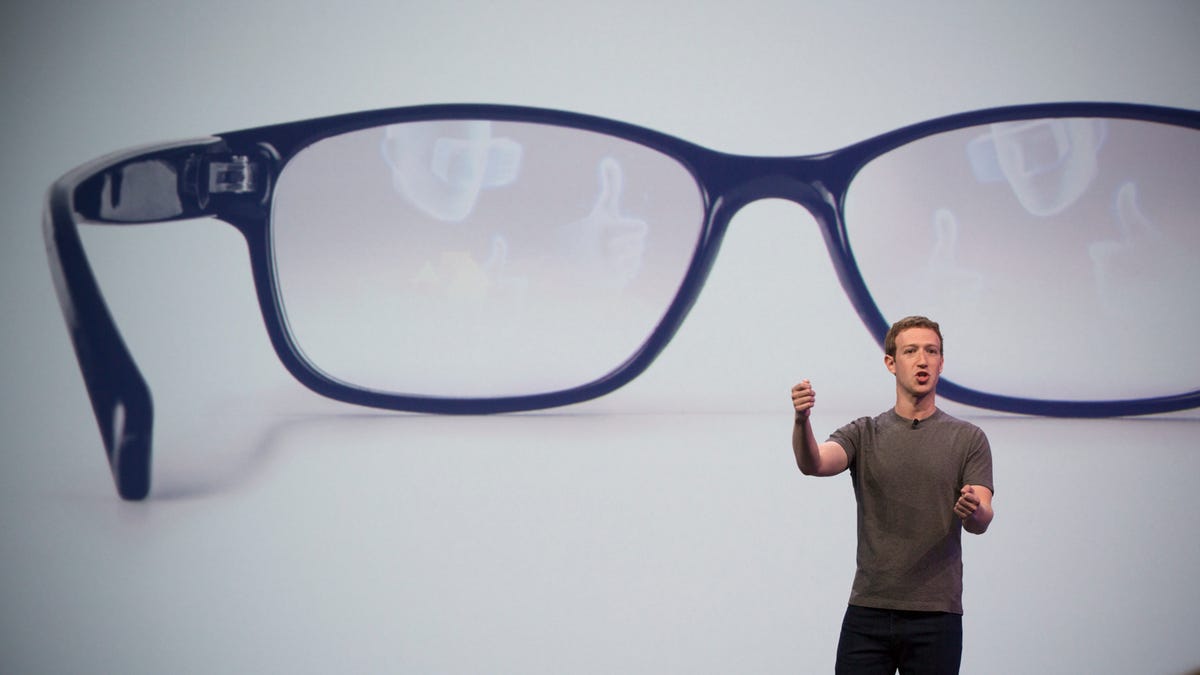Zuckerberg's Oculus has plans to bring computers to your glasses
Facebook's CEO says response to his company's VR efforts has been "really amazing." He also sees a future in which Oculus tech is built into our eyewear.
Oculus Rift is off to a good start.
Facebook CEO Mark Zuckerberg said Tuesday that response to the high-profile new virtual reality headset has been "really amazing." What he didn't say is what exactly that means.
It's been a nearly half a year since Samsung and Facebook released the Gear VR, an entry-level virtual reality headset powered by a phone strapped to your face. Turn it on, and it can trick your brain into thinking you're actually in a computer-generated world.
The $99 device was a lead-up to the Rift, a $599 Oculus headset designed to offer a high-end experience. That device, which requires a powerful $1,000-plus computer, began arriving on customers' doorsteps a little over two weeks ago.
At the moment, the waiting list for the device is long, and you have to factor in manufacturing hiccups. The Oculus website says a device ordered today won't arrive for four months.
But Zuckerberg is betting that once you put the headset on your face, it will give you an experience unlike any other. And he's already planning for the future too.
"Response so far has been really amazing," Zuckerberg said, at Facebook's F8 developer conference in San Francisco. He also still believes VR has the potential to be the next major step in computers.
"Over the next 10 years, the form factor will get smaller and smaller," he said, and eventually we'll have something that looks like a pair of glasses. That's when it can become a part of our everyday life.
Zuckerberg clearly has designs for Oculus to compete with devices like Microsoft's HoloLens, the next evolution of Google Glass and whatever comes out of the well-funded startup Magic Leap. Each features technology that layers computer-generated images on the real world to deliver what's known as mixed reality or augmented reality, in a field that's expected to become a $90 billion business by 2020.
Will this computer-on-your-face technology be the future? Facebook plunked down $2 billion to buy Oculus because Zuckerberg believes so. But he's also realistic and frequently says sales will likely be slow at first.
Still, he's excited by the promise. "Virtual reality," he said, "has the chance to be the next real social platform."


